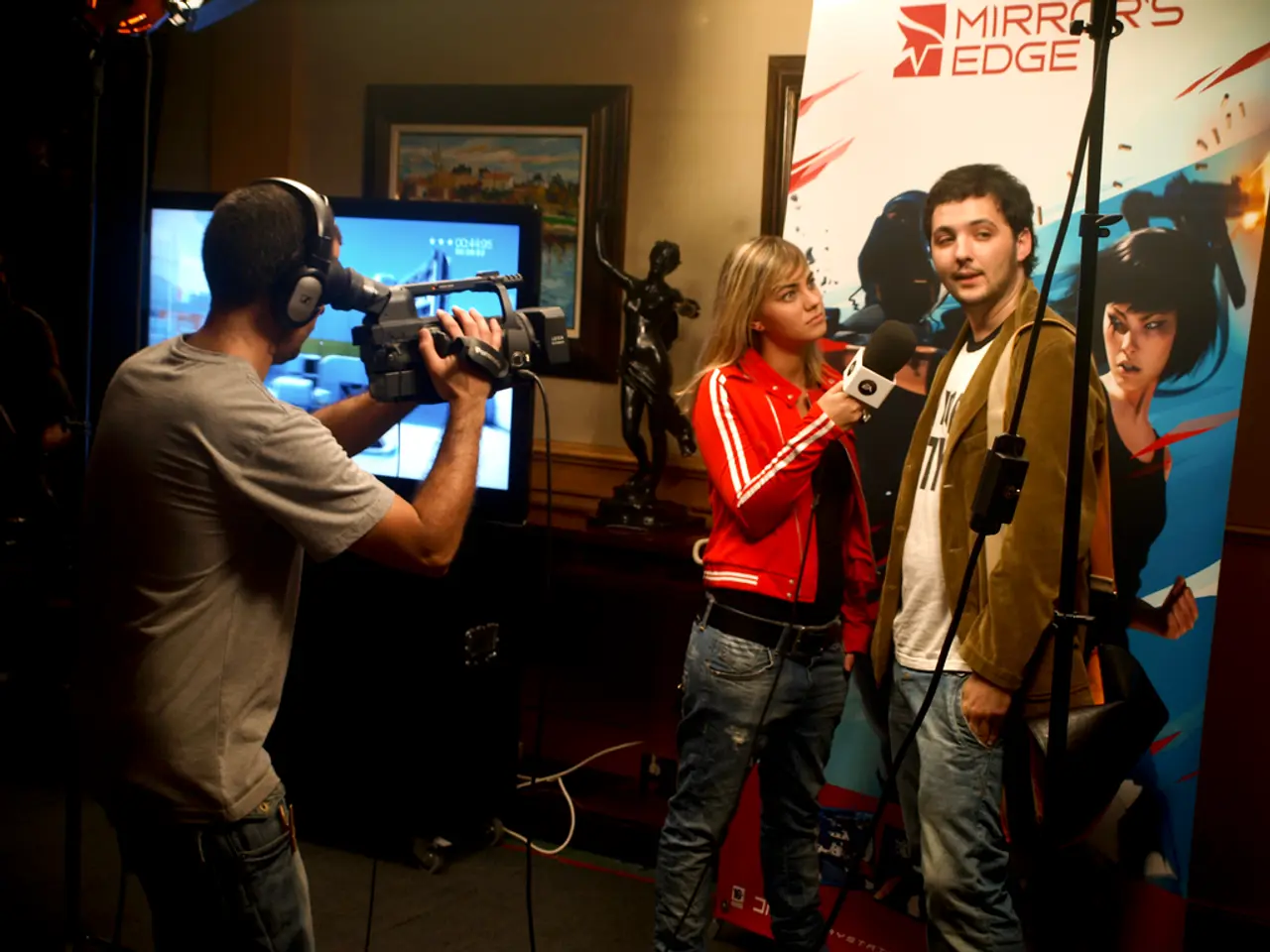Startup Aims to Transfer and Contend Brain Information with Artificial Intelligence
Delaware-Registered Neuralink Makes Strides in Brain-Computer Interface Technology
In the dynamic landscape of the digital age, Delaware continues to be a popular choice for corporate formation for SAAS startups, thanks to its business-friendly laws and established legal framework. One such startup, Neuralink, is making headlines in the world of technology and neuroscience.
Founded by Elon Musk, the PayPal co-founder and CEO of Tesla, Neuralink is a Delaware-registered company operating in California as a "medical research" firm, privately funded by Musk. The company has been working on a groundbreaking neural lace technology, aiming to connect human brains to computers.
First introduced in 80's science fiction novels, neural lace technology has now become a reality. While Neuralink's specific goal is to bring human brain capacity to the same level as advanced artificial intelligence, the technology currently exists and is being used in prosthetics and for communication for paralyzed patients, with about 100 neurons being connected.
Neuralink's work has been reported by the Wall Street Journal, and the company has made substantial progress. As of July 2025, Neuralink has successfully implanted brain chips in multiple human patients, including performing two implants in a single day for the first time. These implants have reportedly resulted in therapeutic benefits, with the patients recovering well.
Neuralink's devices are currently used in therapeutic applications for serious neurological conditions such as ALS and cervical spinal cord injuries, and have received FDA recognition for speech restoration earlier in 2025. The company is also advancing into groundbreaking sensory applications beyond motor function restoration, with the "Blind Sight" project aimed at restoring vision by interfacing directly with the visual cortex.
The bionic vision project, which involves a "bionic eye" using optogenetic techniques combined with AI algorithms to translate camera-captured images into neural signals, is in its early stages of testing in animal models. Human trials are projected to begin around 2030.
Neuralink's roadmap is ambitious and backed by substantial investment, with a valuation near $9 billion and projections of $1 billion annual revenue by 2031, contingent on navigating regulatory and technical hurdles inherent in these complex neuroprosthetic technologies. The U.S. government has granted Neuralink "breakthrough status," which is expected to accelerate development.
In the world of startups, the use of finders, individuals who help in raising capital, has gained popularity. This is a critical consideration for startups, especially in the unique landscape of the digital age. Internships are also crucial for startups in acquiring fresh talent and driving innovation.
[1] Wall Street Journal, July 2025 [2] TechCrunch, July 2025 [3] Wired, July 2025 [4] CNBC, July 2025
Artificial Intelligence is leveraged by Neuralink in developing neural lace technology, aiming to bridge the gap between human brain capacity and advanced AI. The medical-conditions Neuralink aims to address with its technology include serious neurological conditions like ALS and cervical spinal cord injuries, as well as vision loss through the "Blind Sight" project.




